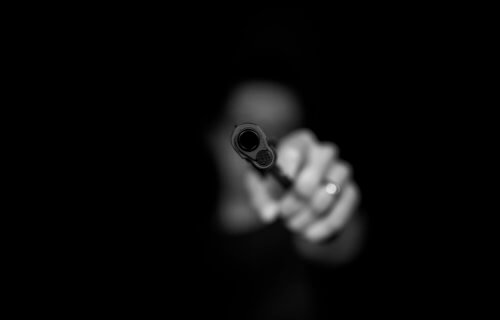RICHMOND, Va. — There have already been over 70 mass shootings in the United States in 2023, according to reports. Now, in an effort to prevent future tragedies, researchers from Virginia Commonwealth University are pointing to social isolation as the single most important red flag leading up to mass shootings. Study authors say their results come from analyzing the psychological crises of 177 mass shooters.
“When we are isolated from our social circles, we lose that functional component of our loved ones being frank with us when our behavior might become inappropriate,” says Samuel West, Ph.D., an assistant professor of psychology at Virginia State University who led the study while he was a postdoctoral researcher at the Injury and Violence Prevention Research Lab at VCU Health, in a university release.
All in all, the research team says social isolation is an “ideal candidate” for acquaintances and communities of would-be shooters to intervene. While the researchers did note other warning signs — such as the “mood swings” crisis indicator being one of the strongest predictors of a mass shooting’s severity — study authors ultimately conclude social isolation is the most important because it acts as a crisis multiplier.
In other words, social isolation often allows crises to increase the risk of other crises. For example, mood swings also increase the likelihood of paranoia, breaks with reality, and difficulties with daily tasks due to its association with isolation.
“It is easy to see how this perfect storm of multiple crises in someone who has isolated themselves could coalesce into more harmful thoughts and ultimately actions without the perspectives of others to act as a protective factor,” adds Prof. West, who received his doctorate from the Department of Psychology in the College of Humanities and Sciences at Virginia Commonwealth University.
How does the world perceive a potential mass shooter?
Prof. West and study co-author Nicholas Thomson, Ph.D., director of research and a forensic psychologist at the Injury and Violence Prevention Program, worked together to analyze datasets using psychometric network analysis — a new machine learning-based approach to exploring and visualizing complex relationships. The pair made it a point to focus on psychological crises that non-expert third parties (friends, co-workers, family) could plainly observe and subsequently intervene.
“Research on mass shootings is scarce, which limits our ability to develop targeted risk assessments and prevention strategies for mass shootings,” explains Thomson, an associate professor in the Department of Surgery in the School of Medicine and the Department of Psychology in the College of Humanities and Sciences. “What Dr. West has achieved with the data is a step in the right direction for understanding the warning signs of people who commit mass shootings.”
Researchers also note that the data used in this project is unique in the sense that it was based on others’ perceptions of a mass shooter.
“In many ways, this is the data that we need because others’ perceptions are integral to identifying and reporting at-risk individuals, and the community is critical to preventing violence,” Prof. Thomson continues. “Equipped with the right knowledge we can develop risk awareness strategies that can prevent mass shootings from occurring. Of course, this is only one piece of the puzzle, but it is an important piece.”
How can you stop a mass shooting before it takes place?
The research team believes social isolation is an ideal target for intervention because it’s preventable, both individually and at a societal level.
“Although most people who experience isolation do not go on to commit such acts of violence, intervening on that isolation only holds benefits for the individual,” Prof. West comments. “This can be as simple as a friend stopping by in person to say hello and catch up — something that we could all benefit from. Although this seems like it may not have such an impact, prior research makes clear that isolation is a necessary component of planning and carrying out a mass shooting as many of the behaviors involved (e.g., stockpiling guns and ammunition) are readily observable.”
At the societal level, potential future interventions could focus on building social ties and addressing isolation across communities.
“One example could be to require students at public high schools to participate in civic events and organizations as part of their compulsory education,” Prof. West remarks. “On the other side of this coin, we also must consider that many of these individuals end up isolated for other reasons initially (i.e., social rejection). As such, working on the inclusivity of others overall while continuing to address bullying behavior in young people could be a fruitful avenue to improve the mental and social health of students and society at large.”
Study authors add that signs of social isolation also tend to be noticeable significantly sooner, such as months or years before an attack, than other psychological crises, which are usually only detectable a few days or weeks before an attack.
“Although scientifically validated interventions for isolation exist, they have all been developed to address isolation in those who are seeking relief,” Prof. West concludes. “Such interventions would necessarily look different with would-be mass shooters as it is likely they would not willfully seek out such help on their own. Our work doesn’t speak to causality or any specific intervention that could be applied in this context.”
The findings appear in the journal Psychology of Violence.


Anyone COULD become a mass shooter. There have been more now because the present regime turns loose anyone it arrests and treats cops and normal people as dirt.